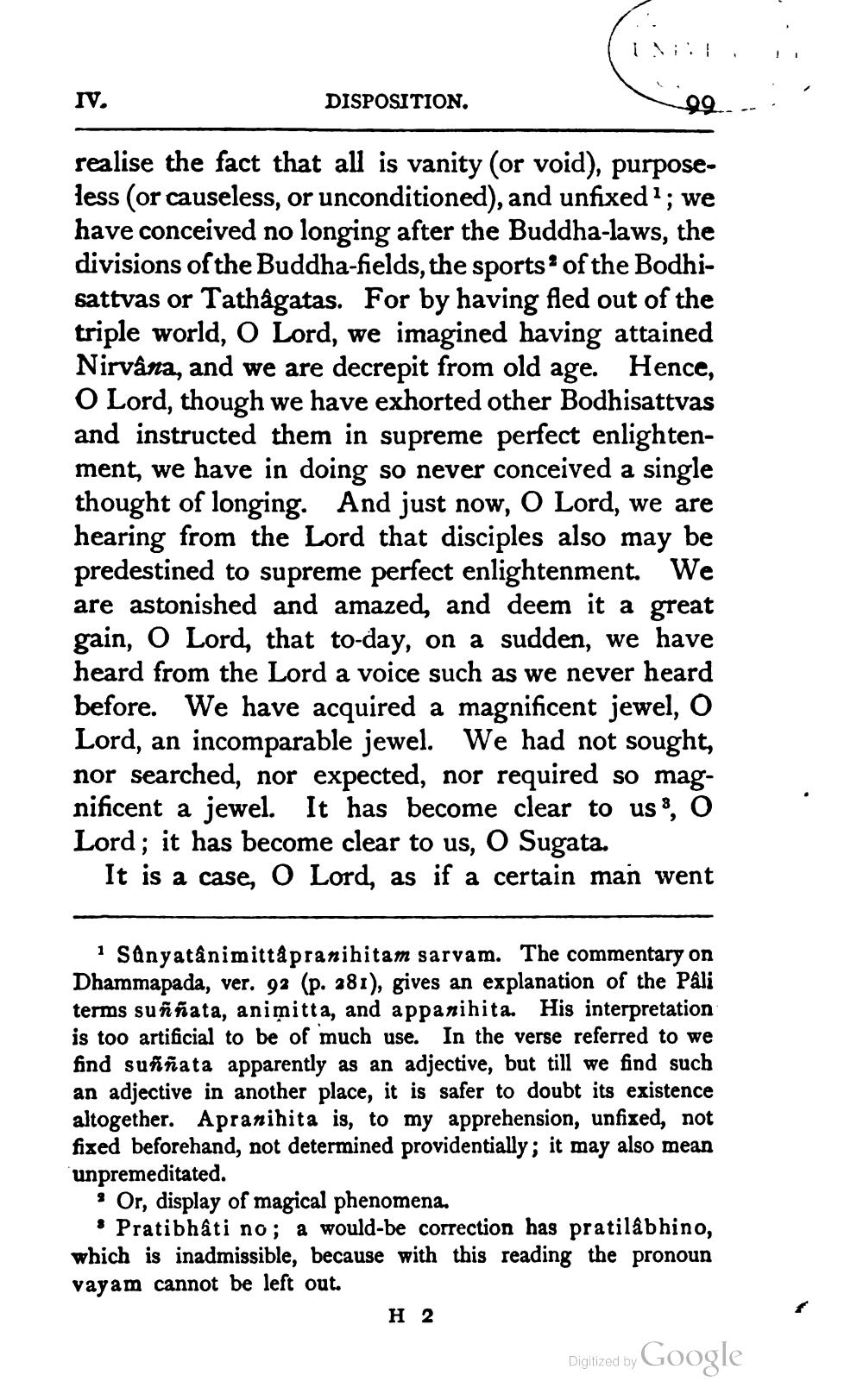________________
IV.
DISPOSITION.
499.--.
realise the fact that all is vanity (or void), purposeless (or causeless, or unconditioned), and unfixed ?; we have conceived no longing after the Buddha-laws, the divisions of the Buddha-fields, the sports of the Bodhisattvas or Tathagatas. For by having fled out of the triple world, O Lord, we imagined having attained Nirvana, and we are decrepit from old age. Hence, O Lord, though we have exhorted other Bodhisattvas and instructed them in supreme perfect enlightenment, we have in doing so never conceived a single thought of longing. And just now, O Lord, we are hearing from the Lord that disciples also may be predestined to supreme perfect enlightenment. We are astonished and amazed, and deem it a great gain, O Lord, that to-day, on a sudden, we have heard from the Lord a voice such as we never heard before. We have acquired a magnificent jewel, O Lord, an incomparable jewel. We had not sought, nor searched, nor expected, nor required so magnificent a jewel. It has become clear to us *, O Lord; it has become clear to us, O Sugata.
It is a case, O Lord, as if a certain man went
· Sünyatânimittåpranihitam sarvam. The commentary on Dhammapada, ver. 92 (p. 281), gives an explanation of the Pali terms su ñ ñata, animitta, and appanihita. His interpretation is too artificial to be of much use. In the verse referred to we find suññata apparently as an adjective, but till we find such an adjective in another place, it is safer to doubt its existence altogether. Apranihita is, to my apprehension, unfixed, not fixed beforehand, not determined providentially; it may also mean unpremeditated.
? Or, display of magical phenomena.
• Pratibhâti no; a would-be correction has pratilâbhino, which is inadmissible, because with this reading the pronoun vayam cannot be left out.
H 2
Digitized by Google




